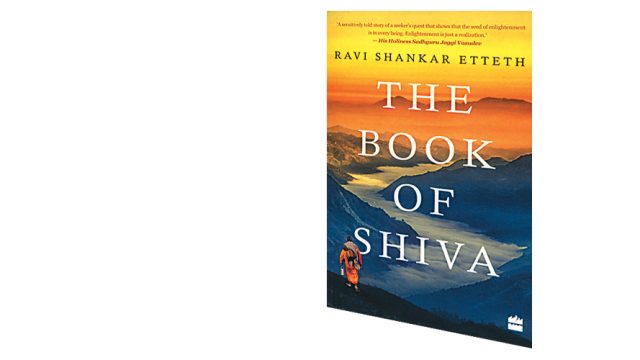The name Ravi Shankar cannot come to mind without its music. To ask Ravi Shankar for The Book of Shiva, whose dance is the rhythm of our Hindu cosmos, is to expect a lot. But that Etteth (is it) or what the book is all about: a lyrical spiritual quest. Suddenly, out of a cacophony of books—many of which are read aloud these days at the 100 or more literary festivals—emerges this silent masterpiece of our confused 21st century.
Ravi Shankar Etteth crafts his prose like a quiet vilambit in Hindustani music. Within the flow of his even madhya laya tempo, sharp and surprising observations bring innuendoes that delight. A great achievement of the book is how it treats invisible time. Pulling it away from the linear Western understanding of it, he sets in parallel, cyclic wheels-within-wheels.
Asananda, our protagonist whose name translates as ‘the one who finds joy in hope’, becomes the alibi for any reader’s search. Etteth sets up a fairly difficult proposition with a promise at the start, where he cannot take you on an aimless journey. Amazing, wise myths, blurred at their edges with modern disbelief, slowly sharpen under his art as his pilgrim travels in places where we all go—Paonta Sahib, Rishikesh—and the lesser known Srinagar of Uttarakhand. The author whips up simple dialogues that are cryptic and loaded with double entendre. He doesn’t want to drown his readers in any heavy Hindu hocus-pocus, but just its filtered wisdom. Personally, I found it very wise and profound. Many Indian or Eastern truisms appear in the text and dialogues which never seem laboured. The language is beautiful and the turn of phrase always poetic on the edge. This journey could be yours and the people encountered may be ordinary, but it is what you as a seeker can extract from them which shows new ways of experiencing Indian wisdom from incidents and encounters. The book ends without a noisy dhrut as the madhyam itself prepares us for a splay of silent gems. A must read in different stages—for life is cyclic.




